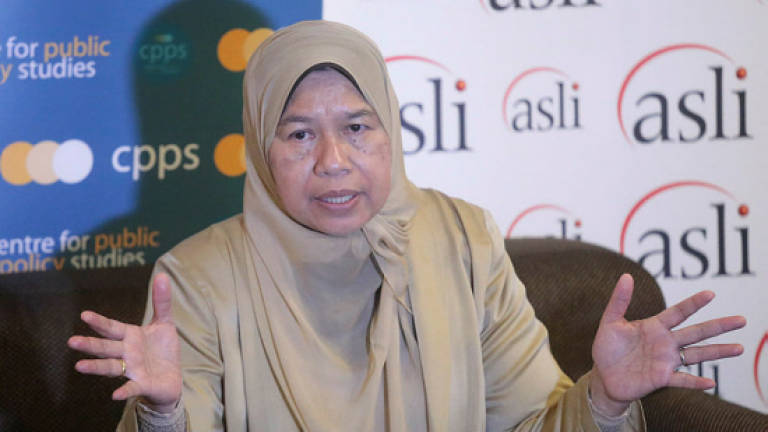Proposal for utility companies to build own amenities

PETALING JAYA: The government is proposing for utility companies to build the respective utilities infrastructure in affordable housing projects to reduce the compliance cost imposed on developers.
Housing and Local Government Minister Zuraida Kamaruddin (pix) said the matter had been discussed with the relevant ministers and the proposal was expected to be enforced in 2019 once the affordable home's policy is approved by the Cabinet.
"Principally, at the ministerial level, we have agreed that the utilities infrastructure building and the cost of building it will be handed over to them (utility companies). This includes Tenaga Nasional Bhd for electricity, and other respective water and telecommunication companies.
"After all, the payment for the bills are collected by these companies, not by the developers," she told reporters after delivering her keynote address titled 'The Malaysian Housing Agenda - A New Hope For All' in conjunction with the Housing Conference 2018 here today.
The conference was organised by the Real Estate & Housing Developers' Association Malaysia (Rehda) Institute.
Zuraida said that compliance cost alone constituted about 20 to 25 per cent of the developers' construction cost.
The ministry was still working with the state governments to identify suitable lands for the construction of affordable houses, with access to facilities, amenities and transportation.
Meanwhile, Rehda Deputy President Datuk Khor Chap Jen said the government should review the huge amount of deposits required from developers for various aspects of their projects as it was affecting their cash flow.
"The impact is felt more severely by the bigger players as they undertake projects with bigger gross development value, and these companies may have many ongoing projects at any particular time.
"The deposits are valuable resources which are tied up unproductively in the banks and is burdening the developers, whereas it could be productively and efficiently utilised for new investments instead," said Khor.
He also said that other input costs that should be reviewed included legislative requirements, cross-subsidises, increased materials and labour costs, levies, increased development charges and other non-productive costs. — Bernama